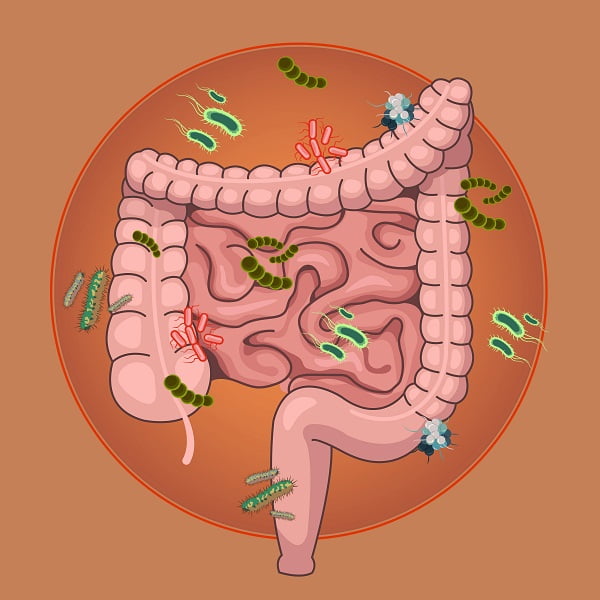What Are the Causes and Risk Factors of Irritable Bowel Syndrome?
- Updated on: Jun 12, 2024
- 2 min Read
- Published on Apr 19, 2021

What Causes Irritable Bowel Syndrome (IBS)
Irritable bowel syndrome is a type of gastrointestinal (GI) disorder. There are no exact causes of IBS. Doctors believe that a combination of problems with your GI tract can cause IBS.

Health problems that are known to cause or worsen IBS symptoms are:
- brain-gut signal problems (gut sensitivity) – how your brain sends signals to your intestines. Many sensations in your body come from your digestive system. The nerves in your digestive system send signals to your brain to tell if you are hungry or full, or if you need to empty your stomach.
- an infection in your GI tract
- GI motor issues – ability of your colon to move during digestion of food
- trouble in digesting food, which causes constipation or diarrhea
- bacteria in your GI tract
- mental problems such as anxiety, stress, depression, etc
- extreme stress
- reactions to certain types of foods – the most widely known IBS trigger is sensitivity to certain types of foods
- dietary allergies can cause IBS symptoms
- genetics is suggested as a potential cause of IBS, but a hereditary link has not been ascertained so far.
- bacterial gastroenteritis (stomach flu” or “stomach bug) – a type of bacterial infection that may lead to IBS
- hormones – women experience severity in IBS symptoms during their menstrual cycles. Many women experience fewer IBS symptoms after menopause.
What triggers irritable bowel syndrome?
Some foods and drinks can trigger the symptoms of IBS. When you know the items that can make your IBS symptoms flare up, you can try to avoid them.
Triggers vary from person to person, but common ones are:
- Fatty foods
- Fried foods
- Chocolate
- Fizzy drinks
- Drinks that contain caffeine
- High-protein diets
- Carbonated beverages
- Refined grains (not whole wheat)
- Excessive amount of eating (large meals)
- Processed foods
- Alcohol
Common problem-causing foods in IBS
- Coffee
- Spicy foods
- Dairy
- Carbohydrates
- Fatty foods and deep-fried items
- Alcohol
Your intestine may be unable to absorb certain types of foods that trigger the symptoms.
What are the risk factors for irritable bowel syndrome? Who gets IBS?
Demographic factors have been found to be linked to IBS symptoms, such as:
- People who are less than 45 years old are more likely to develop IBS
- Women, in particular before menopause, are at higher risk
- People with a family history (genetics)
- People with abnormal (too fast or slow, or too strong) movements of the colon and small intestines
- People who are hypersensitive to pain
- People with reproductive hormones or neurotransmitters that are off-balance
Is irritable bowel syndrome related to small intestinal bacterial overgrowth (SIBO)?
Generally, bacteria live in your small intestine. Small intestinal bacterial overgrowth is an increase in the number or a change in the type of bacteria that live in your small intestine.
These bacteria are responsible for excess gas in your gut and may also cause conditions such as diarrhea. Researchers believe that small intestinal bacterial overgrowth may lead to irritable bowel syndrome. However, it is not confirmed.












